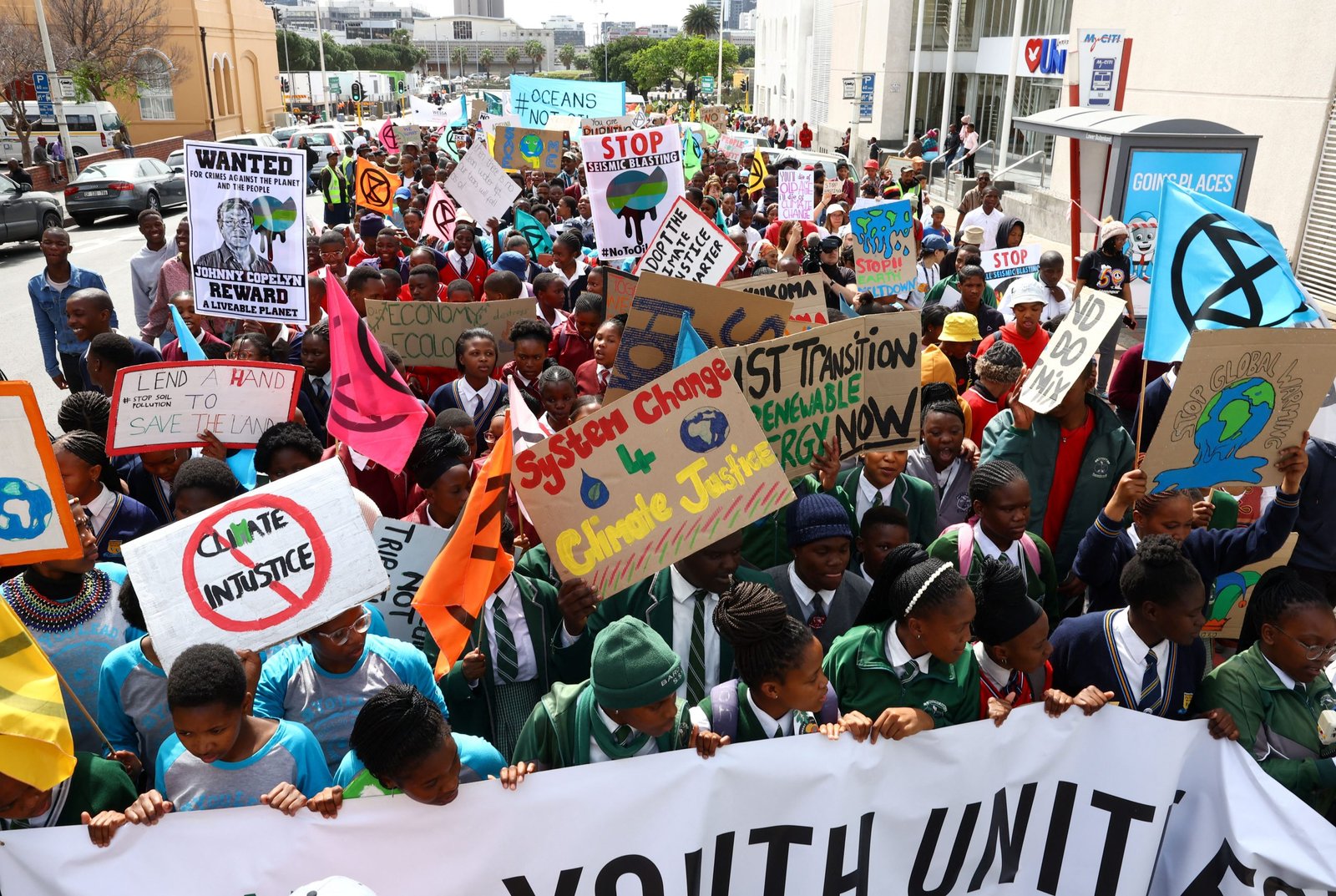The event seeks to empower young African activists on climate and migration and to enhance the voices of youth on climate mobility.

70 young Africans will meet in Nairobi on August 16 and 17 to discuss the chances of youth involvement in migration, the environment, and climate change as well as the challenges posed by climate-induced mobility.
The International Organization for Migration (IOM)’s youth engagement forum will create the key phrases for the “Global Youth Statement” prior to the Africa Climate Summit and Africa Climate Week in Nairobi. These messages will also provide young people an opportunity to voice their opinions during COP28 in Dubai in November.
A young climate advocate from the UN Framework Convention on Climate Change and Youth Convention, YOUNGO, Rose Kobusinge, says the upcoming youth forum will not only be a chance for African youth leaders to participate in policymaking processes but also a way to spark life-changing youth collaboration for local and global action on climate mobility.
The event seeks to empower young African activists on climate and migration and to enhance the voices of youth on climate mobility. Youth will be given the opportunity to talk on the connections between migration, the environment, and climate change through interactive activities.
It will also present an opportunity to evaluate the creative and effective approaches used by young people to solve problems and find chances for human mobility in the context of climate change that might be duplicated throughout the continent and the world.
“Anyone can migrate to a different climate today or tomorrow. Massive climate-related displacements and losses are being experienced by vulnerable groups, but they may be prevented with well-planned, secure, and routine movement and relocation. Because of this, I work hard to spread awareness about both the potential and problems presented by mobility related to climate change, Rose says.
Due to their lack of access to jobs, money, land ownership, political power, and other resources and platforms where they can help mitigate the impact of a changing environment for their generation and future generations, young people are disproportionately disadvantageous when it comes to climate action.
Young people can significantly impact climate action, greener economies, disaster risk reduction, and community resilience to climate migration, despite challenges.
According to Mohammed Abdiker, IOM Regional Director for the East and Horn of Africa, “IOM is committed to granting young people increased access to platforms and forums that allow them to influence the policy decisions that will affect their future lives and livelihoods.”
The youth participation event serves as a forerunner to the continental extension of the Kampala Ministerial Declaration on Migration, Environment and Climate Change (KDMECC-AFRICA), the first regional policy framework to address the relationship between climate change and human mobility. We will work with them to put the pledges into action by incorporating the goals and views the youth generate during this event into the KDMECC-AFRICA.
The Kampala Ministerial Declaration on Migration, Environment and Climate Change, which was signed in 2021, emphasizes the commitments made by countries in the East and Horn of Africa to address obstacles to and opportunities for human mobility in the context of climate change as well as the commitment of the IOM to address emerging environmental impacts and degradation by forging multilateral partnerships, as outlined in its Strategic Vision.
Through the Africa Regional Migration Program (ARMP), the youth engagement event is being organized in conjunction with the Bureau of Population, Refugees, and Migration of the US Department of State.